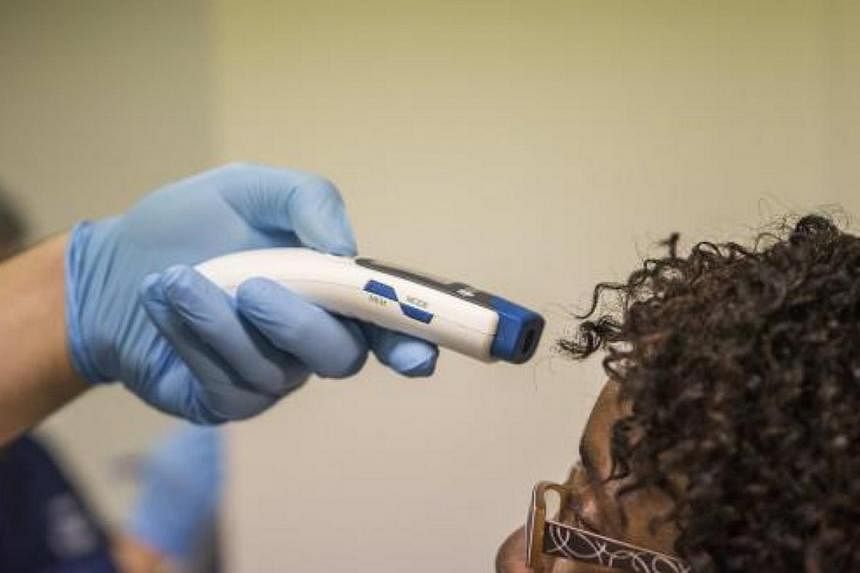NEW YORK (Reuters) - All medical workers traveling from Ebola-affected countries to New York City's airports will face a mandatory 21-day quarantine under new screening rules that exceed federal guidelines, the governors of New York and New Jersey announced on Friday.
State health officials will extensively interview all travelers arriving at John F. Kennedy International Airport and Newark Liberty International Airport from Guinea, Liberia and Sierra Leone, New York Governor Andrew Cuomo said.
Besides medical workers, anyone else who had direct contact with someone with the virus must also submit to a quarantine for 21 days, Mr Cuomo said at a joint press conference with New Jersey Governor Chris Christie.
"It's too serious a situation to leave it to the honor system of compliance," Mr Cuomo said.
The announcement came a day after Dr Craig Spencer, a 33-year-old New Yorker, was diagnosed with Ebola at a city hospital soon after returning from Guinea.
Dr Spencer had been working with Ebola patients in the hard-hit West African country for the humanitarian group Doctors Without Borders.
"He's a doctor and even he didn't follow the guidelines for the quarantine, let's be honest," Mr Cuomo said.
It was not immediately clear if Dr Spencer had ever been required to quarantine himself by any authority.
Doctors Without Borders has said a quarantine is "neither warranted nor recommended" for its returning workers unless they show Ebola-like symptoms.
Instead, it asks returning workers to watch for a tell-tale fever by recording their temperature twice a day, which Dr Spencer had done, according to New York health officials.
Ebola is transmitted by direct contact with the bodily fluids of a person sickened by the virus, and has an incubation period of up to 21 days.
Mr Cuomo said the U.S. Centers for Disease Control and Prevention (CDC) was aware of the new screening procedures, and agreed that states have the right to protect their borders.
CDC's guidelines may work elsewhere, he said, but were insufficient for the country's most densely populated metropolis.
"You go out one, two or three times, you ride the subway, you ride the bus, you could affect hundreds and hundreds," Mr Cuomo said.
The CDC and Doctors Without Borders did not immediately respond to a request for comment.
Mr Christie said that people facing quarantine orders who live in New York or New Jersey will be able to be quarantined in their homes.
Those from outside the area will be sent to some sort of medical facility, he said. "We've agreed that quarantine is the right way to go," Mr Christie said.

